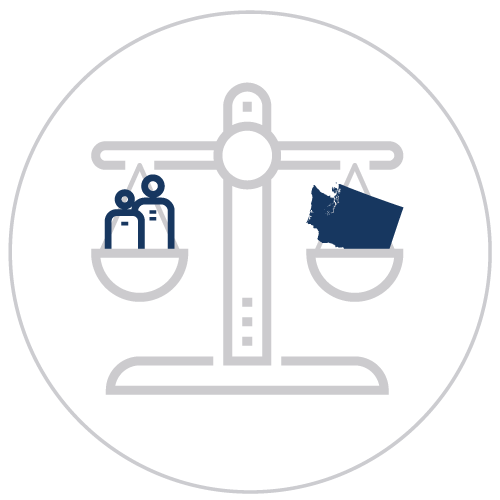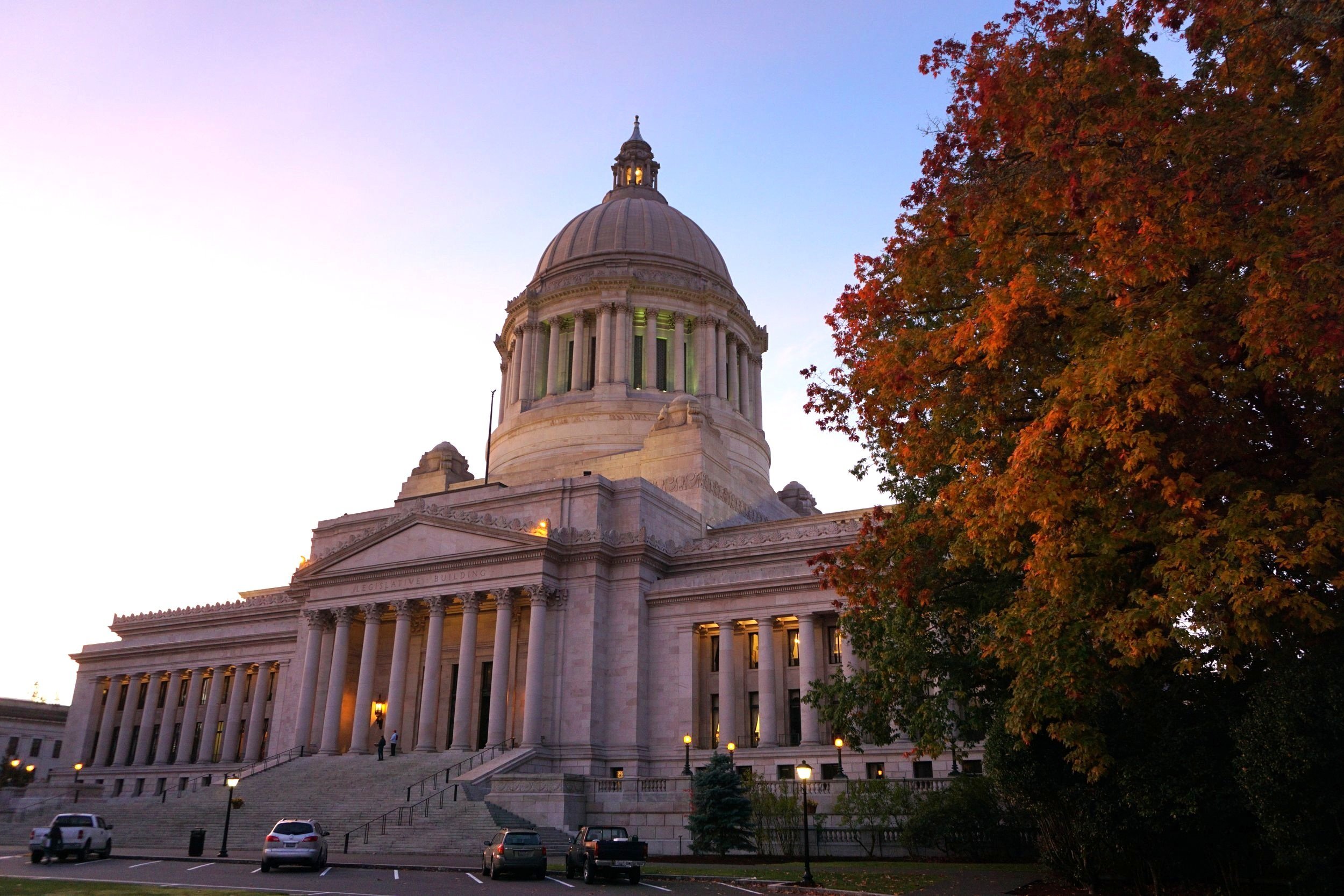
Your Right to Know Report
YOUR
RIGHT
TO KNOW
A special report on the erosion of public access to
government information in Washington state

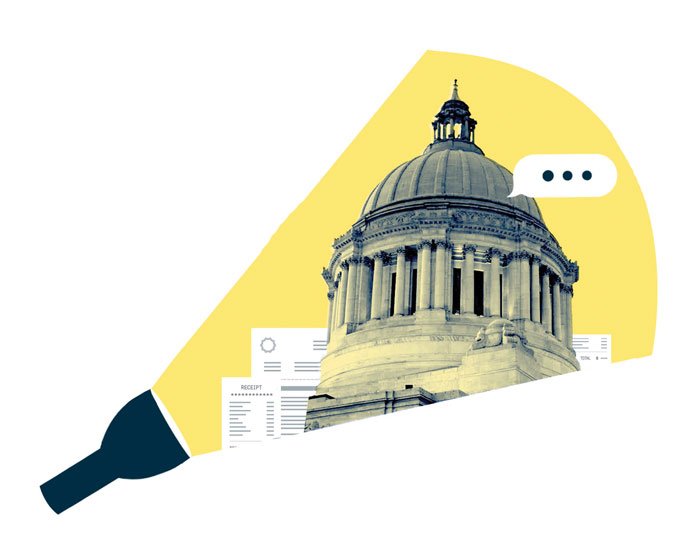
Contents
ForewordData Dive | Agency performance on the Public Records Act
Conclusion, and a call to action
Perspectives
Legislators Do Not Own Public Records, the People Do
Legislators Thwart the State Sunshine Committee
Some Officials Use Technology to Avoid Disclosure Laws
Government Keeps Erecting Hurdles for Records Requesters
Public Officials Delete Key Text Messages
Officials Have Interfered With Public Records Officers
Many Agencies Fail to Adequately Organize Their Records
Disclosure Delays Plague Records Requesters
Attorneys Often Steer Agencies into Needless Litigation
When It Comes to Transparency, the State AG Lags, Fails to Lead
At the State AG, It’s Advice for Me but Not for Thee
Few Consequences for Those Who Ignore Transparency Laws
Acknowledgments

Foreword
The people have a right to know.
That was the idea in 1972, when a citizen’s Coalition for Open Government in Washington State successfully worked to pass Initiative 276, the Washington Public Disclosure Act, a portion of which became the Public Records Act (PRA). The new PRA passed overwhelmingly and resulted in laws requiring broad access to public records.
Some 50 years later, the people’s right to access government information is eroding at the state and local levels. Often with good intentions, sometimes with bad intentions, governments have moved toward secrecy and withholding information that legitimately should be public.
For example, the state Legislature since 1972 has made hundreds of exceptions to the general rule that all government records must be open to the public. In the past 11 years alone – since 2012 - state lawmakers have added nearly 200 exemptions. The number of accumulated PRA exceptions will likely exceed 700 in two or three years.
This erosion in openness is why WashCOG formed in 2002 as an independent, nonpartisan, nonprofit organization that works through the courts and the Legislature to defend and strengthen Washington’s open government laws.
Open government advocates like WashCOG have been winning many battles but losing the war. We believe the situation for open government has become as bad as it was in 1972, when voters passed Initiative 276. Clearly, Washington needs stronger protections – perhaps a constitutional amendment – to keep government open and accountable.
This is a pivotal moment. The erosion of the people’s right to know must be stopped. It is also a moment of opportunity to alert the public and inspire you to act.
In that spirit, WashCOG is launching Your Right to Know, a movement to catalyze the public, media and politicians on behalf of open government.
This report focuses on the status of Washington state’s Public Records Act, which should be the bedrock of the people’s right to know. Sadly, it has instead become a symbol of a broken system at all levels of government.
For many years Washington was considered among the most transparent states, but its Public Records Act has been steadily weakened by lawmakers and the courts. The state Legislature keeps exempting more information from public disclosure while finding new ways to withhold its own records. Requesters are waiting longer for agencies to disclose records. Requesters rarely sue, and what agencies spend on records requests is a tiny piece of their total outlays. Nonetheless, critics often portray the PRA as the source of burdensome expenses and lawsuits.
Data compiled by the government show:
Washington’s Legislature and many agencies are undermining the PRA. To change that, this report will provide a foundation for legislative and legal action, possible structural change and, if necessary, a constitutional amendment.
Seven states – California, Florida, Illinois, Louisiana, Montana, New Hampshire and North Dakota – explicitly assert the public’s right to know in their constitutions. (1) The essence of these state constitutional rights is that no person shall be deprived of the right to examine documents or to observe the deliberations of all public bodies or agencies of state government and its subdivisions, except in cases in which the demand of individual privacy clearly exceeds the merits of public disclosure.
That is also the essence of the WashCOG Your Right to Know movement. It will include increased WashCOG engagement in high schools, colleges, educational organizations, civic groups and the media – anywhere there are opportunities to spread the word about the importance of open government in a democracy.
We will also work collaboratively with the many public agencies and officials that strive for openness, despite inadequate funding and training. We are committed to helping them make Washington a model for the nation when it comes to transparency and accountability.
This report is a collection of analytical essays written by members of the WashCOG board of directors. The topics represent problems or “pain points” that we have identified in recent years. From these analyses we have identified a list of findings and recommendations for action. The report concludes with a call to action by the public. You have a right to know and it’s time for you to be heard.
The Washington Coalition for Open Government is an independent, nonpartisan, nonprofit organization that was established in 2002 as a public advocate for open government.
- Jessica Terkovich and Aryeh Frank, “Constitutionalizing Access: How Courts Weigh State
Constitutional Claims in Open Government Litigation,” The Journal of Civic Information, June
2021.
https://journals.flvc.org/civic/article/view/129179/130785
The People’s Right to Know is Eroding.
This Trend Must Be Stopped and Reversed.
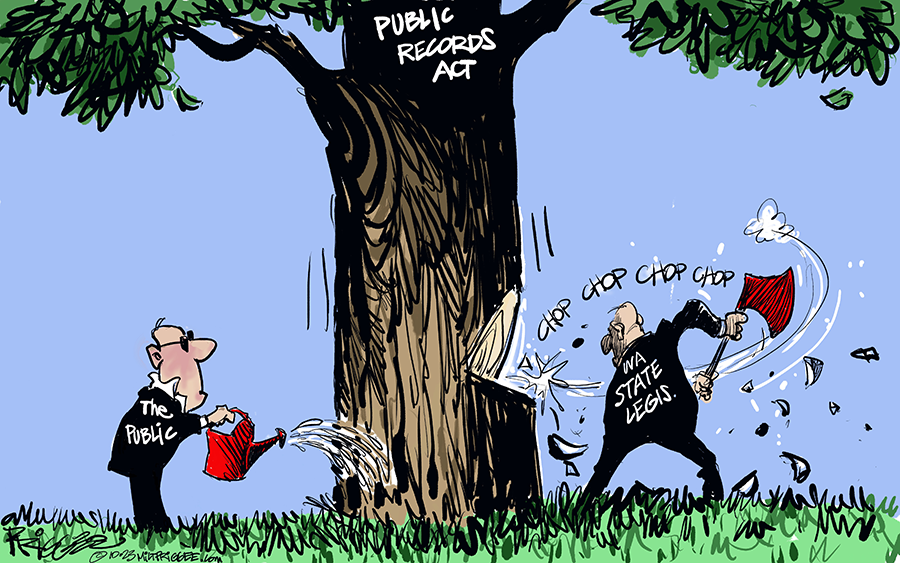
For many years, Washington was considered among the nation’s most transparent states. But legislators and courts have steadily undermined Washington’s Public Records Act. This trend must be stopped and reversed. Public records don’t belong to the government; they belong to the people. Public trust in government depends on openness, transparency and accountability.
WashCOG Recommends:
- Despite the fact that government agencies and officials often complain the PRA is a burden that gets in the way of doing their job, they must uphold the PRA. It is an essential element of their job and should be treated as such.
- Government at all levels should be required to operate transparently, facilitate easy low-cost access to public information, and make data available in standardized formats that support public use of such data.
- Governments should fund transparency as a basic service. Information infrastructure should be regarded similarly to other infrastructure needs.
- Governments should use technologies to enhance transparency, not to evade it.
- Governments should provide for independent oversight of their transparency policies, procedures and practices.
- If the erosion isn’t reversed, voters should pass a constitutional amendment to protect the people’s right to know.
Findings:
In examining why the people’s right to know is eroding, WashCOG found these recurring problems regarding the Public Records Act:
- The Washington Legislature Undermines the PRA
- Public Officials and Agencies Obstruct Requesters
- Agencies Fail to Properly Maintain, Organize and Disclose Records
- Open Government Training Is Inadequate and Often Wrong
- The Public Records Acts Needs to Hold Officials Accountable
The Washington Legislature Undermines the PRA
Every legislative session involves a battle by the public to stop further erosion to open government laws. In recent years the Legislature has made several attempts to exempt itself from the PRA and routinely adds new exemptions. To close exemptions, lawmakers have rejected nearly all recommendations from the state’s Sunshine Committee, which reviews exemptions from the Public Records Act’s disclosure requirement. Most recently, some legislators have asserted a state Constitutional privilege allowing them to individually and personally withhold or redact records. WashCOG believes this is wrong.
WashCOG Recommends:
- Every legislator and legislative candidate should pledge to support open government in addition to pledging to defend and strengthen the PRA.
- The Legislature should enact all of the Sunshine Committee’s pro-transparency recommendations that it has so far ignored.
- To ensure that legislators pay attention to recommendations of the Sunshine Committee, the Legislature should require presentation of the committee’s annual reports in public meetings of the relevant House and Senate committees.
- And, most of all, legislators and legislative candidates should pledge never to try to exempt the Legislature itself from the PRA or claim a personal privilege to withhold or redact public records.
Public Officials and Agencies Obstruct Requesters
State and local governments keep trying to put more bureaucratic obstacles in front of requesters. The stumbling blocks include lengthy administrative appeals and ambiguous dates for final installments. Such maneuvers discourage requesters from challenging agencies and deny them justice. These obstacles undermine the purpose of the PRA – the people’s right to access government records.
Example: Officials use personal technology to evade public records laws
More than a decade ago, the Washington Supreme Court ruled that documents created in the course of public employment are public records even when saved on personal cell phones and other private devices. But there are indications that some public employees and officials bypass disclosure laws by using their personal cell phones or email accounts. In other high-profile cases, agencies or individual officials have deleted text messages, which are disclosable public records.
It is sometimes difficult to enforce the rule without lengthy and expensive investigations.
WashCOG Recommends:
- Agencies should prohibit their officials and employees from using private modes of communication and ban the use of disappearing-message apps such as Signal to conduct public business.
- Agencies should ensure that officially endorsed communications platforms such as Microsoft Teams are set to preserve public records in compliance with the PRA. This is not currently happening in all cases.
- Better and more training should be required for public officials; but training alone isn’t enough. Public officials need to embrace the spirit, as well as the letter, of the PRA.
- The state's record retention statute should be reformed to provide realistic penalties and enforcement procedures for premature destruction of public records.
Example: Agencies Fail to Promptly Respond to Requests
The state Public Records Act and decades of case law say agencies must make records “promptly” available to requesters. But agencies use a variety of rationales for delaying disclosures.
WashCOG Recommends:
- Agencies should help the public get the records to which they are entitled, instead of operating in ways that make that more difficult.
- Agencies should default to disclosure of information rather than withholding, except when exemptions to disclosure are clear under the law.
- Agencies should notify requesters about the results of a records search to make sure the documents are what the requester wanted.
- Agencies should give requesters a specific calendar date for when a request will be unilaterally closed for failure to pay or pick up the records.
- Agencies should notify requesters that they are taking action that triggers the statute of limitations and tell requesters when the one-year statute of limitations begins to run after a request is closed. Any notice of failure to pay for or pick up records requires an opportunity to cure the default and continue the production of the installments without demanding the requester make a new request and start over.

Example: Agencies Delay Release of Records by Abusing the Ability to Notify Persons Named in a Record
Agencies are using the third party notice requirement not just as a delaying tactic, but as an attempt to shift responsibility for upholding the PRA away from the agency. Persons named in a record often sue the requesters, causing further delays.
WashCOG Recommends:
- The amount of time allowed for such parties to file for an injunction to block release should be limited to two weeks or less.
- Agencies should be required to identify the exemption under which the record could be withheld when providing notice to requesters.
- Requesters who successfully defend against a lawsuit filed by a third party to block release of records should be able to recover their attorney fees and court costs from that party or from the agency.
Example: Agencies are Prone to Escalating Records Disputes
Lawyers who represent agencies in records disputes too often lead their clients down legal paths that are needlessly time-consuming, costly and acrimonious.
WashCOG Recommends:
- Agencies should more freely waive PRA exemptions in the interest of transparency, especially when the information pertains to matters of public interest.
- This should include waiving PRA exemptions for attorney-client communications and work product to avoid excessively redacting attorney invoices and providing insufficient explanations for withholding information.
- Agencies sued for violating the PRA should first re-examine their initial response, then disclose any improperly withheld records, update their exemption logs, and/or revise any anti-transparency practices or procedures before defending the agency’s conduct in litigation.
Agencies Fail to Properly Maintain, Organize and Disclose Records
From its inception, the state Public Records Act required agencies to adopt rules for protecting and organizing their records. But many agencies have failed to do so, and others fell behind when the digital revolution unleashed a torrent of electronic documents. Agencies with poorly organized records spend more time and money searching for documents to fulfill records requests. The public is ill-served by lengthy, inefficient and incomplete searches of disorganized records.
WashCOG Recommends:
- State law should impose consequences on agencies that fail to adopt rules to ensure effective retention, organization and production of public records.
- The state Office of the Attorney General (OAG) should uphold the Public Records Act by making its own records management a model for best practices.
- Revised model rules should include specific provisions for organizing public records that would reduce the time spent on searches, reviews and redactions. WashCOG has proposed such rules in the past, and we are ready to work with public officials on future rulemaking.
Open Government Training Is Inadequate and Often Wrong
Washington law requires state and local elected officials, as well as all agency-designated public records officers, to undergo training on the legal requirements governing record retention and record production.
The Legislature has found that “the implementation of simple, cost-effective training programs will greatly increase the likelihood that public officials and agencies will better serve the public by improving citizen access to public records and encouraging public participation in governmental deliberations. Such improvements in public service will, in turn, enhance the public's trust in its government and result in significant cost savings by reducing the number of violations of the public records act and open public meetings act."
Despite that, inadequate or incorrect training of officials and employees is often the cause when problems arise.
One reason is because the Attorney General’s office plays an oversized role in PRA advice and training, in conflict with its core mission to protect government agencies from liability. This inherent conflict biases the OAG's understanding of records law, making the OAG's training among government employees tilt in favor of nondisclosure, not transparency.

WashCOG Recommends:
- PRA training should encourage officials and employees to understand that they, as guardians of public records, are essential to public trust. Training should embrace the spirit of transparency to assure that the public interest will be fully protected.
- The state OAG should stop pretending it can defend agencies in PRA cases and impartially interpret open government laws. To that end, the PRA should be amended to clarify that the OAG's interpretations, whether through model rules, its own rules, or guidance publications, have no persuasive or precedential value. Only the courts are equipped to determine what the PRA requires. Furthermore, agencies may not defend themselves from liability by claiming reliance on the OAG.
- The public must consider transparency credentials when electing an Attorney General.
Example: The People Receive Little to No Guidance From State government on Exercising Their Right to Know.
The Public Records Act says, “The people of this state do not yield their sovereignty to the agencies that serve them. The people, in delegating authority, do not give their public servants the right to decide what is good for the people to know and what is not good for them to know. The people insist on remaining informed so that they may maintain control over the instruments that they have created.”
WashCOG Recommends:
- The people deserve help in using the PRA, including training. Transparency laws are only effective if they are used. WashCOG stands ready to lead this effort to democratize PRA use.
- There should be a movement to restore public sovereignty. The people’s right to know must be defended and strengthened at all levels of government. WashCOG also stands ready to do that.
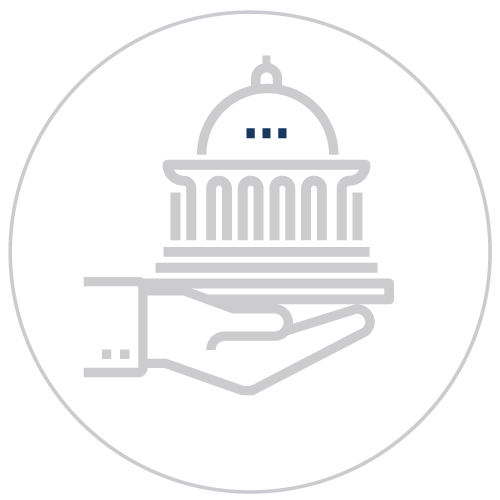
The Public Records Act Needs to Hold Officials Accountable
Washington’s Public Records Act is often heralded as one of the strongest,on paper, in the nation. But its strength is often paper-thin, due to lack of enforcement against those who violate provisions of the act.
While inadequate training may explain most problems, in some instances, agencies have interfered with records officers by directing the officers to deny disclosure or hide troubling and embarrassing information. In several recent high-profile cases where officials and politicians could expect close public scrutiny, text messages were deleted from their cellphones or other devices.
Though those actions stand in defiance of the Public Records Act, few, if any, officials have been held accountable for their actions. The frequency of agency interference with public records officers is unknown, but the cases that have come to light are troubling and almost certainly not solitary incidents.
WashCOG Recommends:
- The penalties currently in the PRA need to be applied to hold agencies accountable for failures to implement the law, especially for egregious violations. Often they are not.
- For Washington’s PRA to have real strength, we need a law, like those adopted by some other states, in which individual officials and agency leaders are held personally accountable and residents can initiate litigations for deliberate violations of the act.
- The personal liability provisions of Open Public Meetings Act (OPMA), RCW 42.30.120, should be expanded to hold government officials personally liable for knowing violations of the PRA in the amount of $500 for the first offense and $1,000 for each subsequent offense. Any civil penalty would be assessed by a judge of the superior court and an action to enforce this penalty may be brought by any person.
